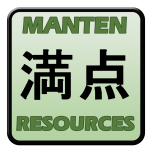If you are looking for a different way to develop your students speaking, reading and writing skills in Japanese, then perhaps you should try this controversial method.
One of the challenges of a language teacher, particularly at the secondary level, is that the level of target language competence is greatly inferior to the student’s ability to think in their first language. These can lead to much frustration for both the learner and the teacher. Class activities can appear less sophisticated than other subjects if pitched at the level of target language competency. Whilst the Japanese class works extremely hard to master ordering a meal, next door the geography class is solving global environmental issues. Sometimes teachers resort to discussing the higher order cultural issues in English but then feel guilty that they have abandoned the “language aspect” of the lesson. So, what can we do to achieve a better balance?
My preference is to use English as the stimulus resource and Japanese as the language of interaction. This way students can quickly access the key concepts of the issue and tick that literacy box at the same time. The interaction with the materials though focuses on developing student productive skills such as listening and responding, summarising facts as an infographic or composing skits based on the perspective of the stimulus text.
So how could this work in a secondary context. Take the following link as a sample stimulus text. It introduces the story of the Indonesian sisters who campaigned to ban plastic bags in Bali.
After reading this text in English, you could discuss the text with your students in the following ways.
1.Speaking skills check
メラティさんとイサベルさんはどこからきましたか。どこにすんでいますか。なにじんですか。
メラティさんはイサベルさんのお母さんですか。
メラティさんは何才ですか。
2.Reading skills check
メラティさんとイサベルさんは何がきらいですか。
- ビニールぶくろ(ごみ)
- いぬ
- しゅくだい
メラティさんとイサベルさんはロンドンにいきました。 まる・ばつ
3.Writing skills
Writing tasks will vary according to the level of the students but could be composed and performed in small groups. For example, students could imagine they are Melita and Isabel. They could write:
- a role play about the lesson that led them to start the campaign
- a letter/email to a relative telling them about their trip to London to speak at the TEDTalk conference
- a diary reflection about telling their parents their plans for the campaign
- a comic summarising the key events in their story
At our Noosa Workshop, we will be looking at some more examples of how you can apply this technique using texts on gender issues and stereotyping in the media. Delegates will have a chance to experience the technique first-hand and will receive all the texts and sample tasks as part of the workshop. We hope to see you there!
